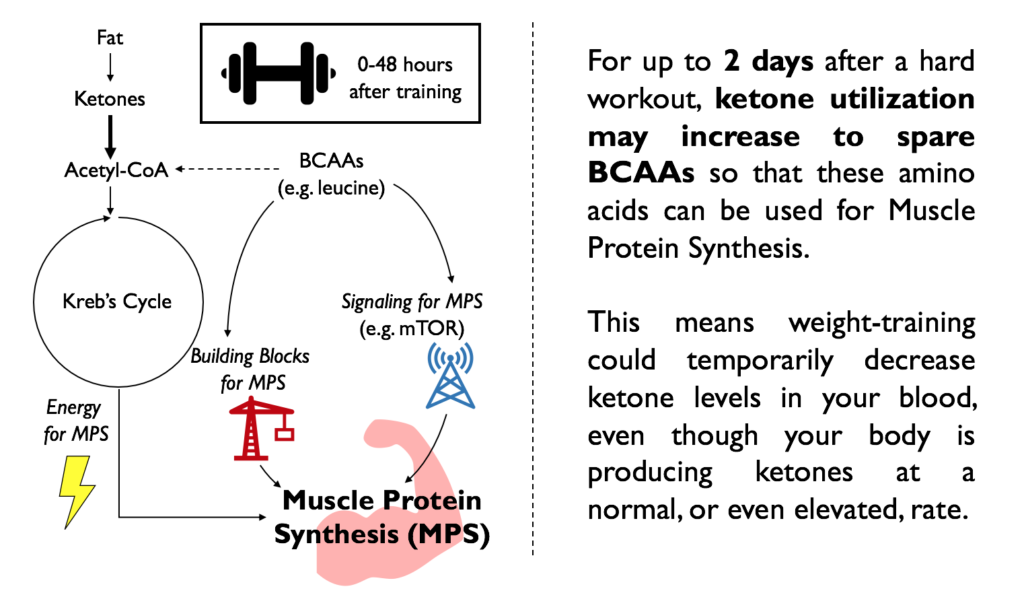
Within the ketogenic community, the common wisdom is that exercise increases ketogenesis. In general, this is true. During exercise, your body demands extra fuel, so it burns fat and makes ketones. However, this logic does not necessarily mean that exercise will increase your ketone measurements. In fact, exercise aimed at building muscle may even decrease blood ketones!
When I began a muscle hypertrophy program, I was shocked to find that new workouts actually decreased my ketones, not only directly after my workouts, but continuously. At first, I was confused and disappointed. For a ketonian and blood tracker, ketone levels are often perceived as a marker of success. Therefore, if my ketones were going down, I must be doing something wrong. Not so!
I started thinking about the conundrum and realized that it makes total sense that a weight lifting program would decrease my ketone measurements for as long as I am building muscle. Here’s why: When you’re trying to build muscle, three things need to happen to allow for muscle protein synthesis (MPS).
(1) First, your cells need to generate energy to fuel MPS. They do this through a metabolic pathway called the Kreb’s cycle.
(2) Second, your muscles need building blocks called amino acids to synthesize new muscle protein.
(3) Third, certain cell-signaling pathways need to be activated within your muscles to tell them that it’s time to grow (the mTOR pathway is a popular example).
Molecules called Branched Chain Amino Acids (BCAAs), which include leucine, isoleucine, and valine, help carry out all three of these functions. They can be burned in the Kreb’s cycle to make energy for MPS (1). They are building blocks for MPS (2). And they (primarily leucine) help send the signal within the muscle cells that shouts, “get bigger!” (3).
To sustain the energetic demands of MPS, your body has two options: either it shuttles BCAAs into the Krebs cycle or it can shuttle fats and ketones into the Kreb’s cycle at a higher rate. Of these two options, by far the more adaptive choice to use the fats and ketones. What this does is it spares the BCAAs to both act as building blocks for MPS and stimulate MPS-promoting cell-signaling pathways!
(read more here: https://www.ncbi.nlm.nih.gov/pmc/articles/PMC303494/)
In brief, don’t be concerned if weight or resistance training decreases your ketones. It may not mean that you’re doing something wrong, but rather that you’re doing something right! You may still be making ketones at the same rate. You may even be making more. It’s just that, at the same time, your muscles are using more ketones to so that you can support optimal MPS while living a low-carb high-fat lifestyle!

*The views and opinions expressed herein are those of the author and do not necessarily reflect the views of MDLingo.com, its affiliates, or its employees.